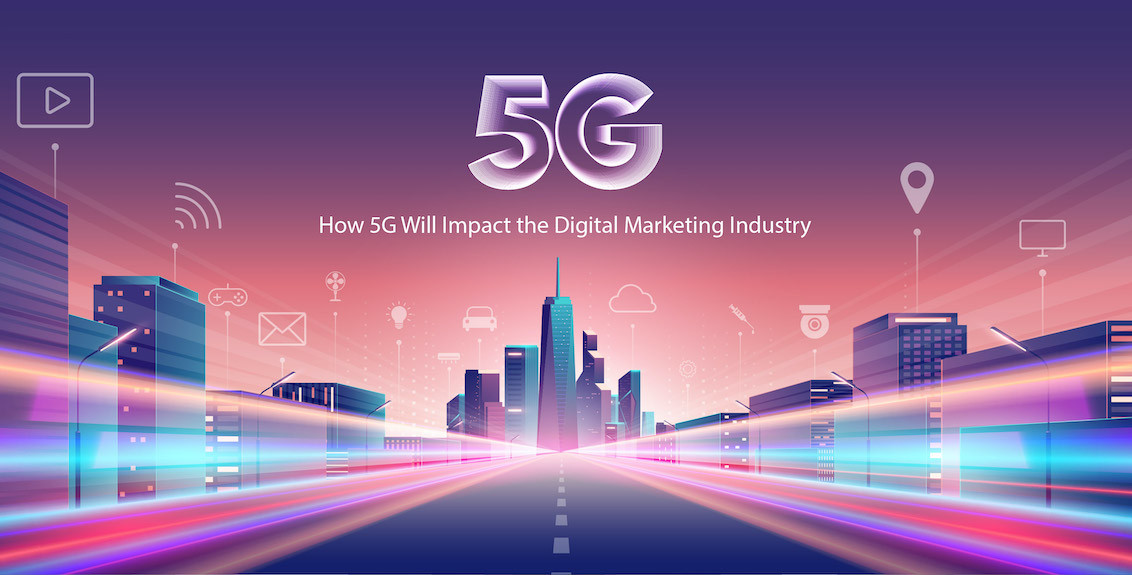How does 5G technology impact digital marketing?
(Baonghean.vn) - 5G technology has been widely deployed in many countries around the world. This is expected to create opportunities to revolutionize the digital marketing industry in the new era.
5G is the latest mobile generation that is being commercially deployed by many countries around the world. According to data released in October 2023 by the Global Mobile Suppliers Association (GSA), more than 4 years after Korea deployed the world's first commercial 5G network in April 2019, there are now 292 commercial 5G networks globally and 578 mobile operators investing in 5G networks.

Compared to 4G, 3G and 2G network generations, 5G will provide users with completely new experiences such as playing virtual reality games, exercising with a virtual coach, visiting virtual art museums... With an ideal maximum speed 100 times faster than 4G, 5G network is expected to bring users the fastest online learning, shopping and working experience.
Such a transformation could disrupt the norms of digital marketing and customer outreach, opening up newer avenues for brands to connect with their target audiences on a deeper level. This makes it imperative for digital marketers to anticipate the immediate impact of 5G on brand management and customer engagement in the new technological era.
What is digital marketing?
Digital Marketing can be understood as marketing activities that a company or organization carries out to promote the image or products of this company or organization, but through digital media channels (eg: website; social networks Zalo, Facebook, ...; email; applications/apps on smartphones, etc.) instead of traditional marketing methods (eg: newspapers, television, leaflets, advertising letters, ...).
Digital marketing can also be understood as the promotion of brands, products, and services through the use of all forms of digital advertising to reach customers in real-time, relevant, personalized, and highly effective ways for businesses.
The goal of digital marketing is to quickly increase brand awareness, create trust and increase conversion rates, thereby businesses can both achieve sales and profits, and obtain extremely valuable customer data sources.
In essence, digital marketing is still advertising communication of products, services, and corporate image; but unlike traditional marketing, digital marketing uses different tools and forms of promotion to achieve the purpose of conveying the corporate message.
The emergence of digital marketing is gradually changing the role of traditional marketing. With the global digitalization trend, digital transformation in marketing is inevitable to compete and develop in the digital age.
The Key Impacts of 5G on Digital Marketing
The impact of 5G technology on digital marketing is predicted to be profound, with the potential to change the way businesses reach and interact with their customers. Here are some of the impacts that digital marketing companies and brands should take note of:
1. Enable real-time marketing
5G technology is expected to be very useful in helping brands analyze their customer data at lightning speed. The real-time data processing capabilities of 5G networks will also allow advertisers to adapt their media campaigns accordingly, responding to changes in consumer behavior and market conditions faster than ever before.
Furthermore, it will allow digital marketing companies to create and launch targeted ads based on specific locations, times, or activities. This will help digital marketing companies create hyper-personalized ads for each audience, increasing customer engagement rates.
2. Promote the application of virtual reality technologies
The new generation of mobile networks, 5G, will facilitate the widespread adoption of new technologies such as virtual reality (VR), augmented reality (AR), and mixed reality (MR). The ultra-low latency and ultra-high data speeds of 5G networks will enable VR technologies to deliver truly immersive experiences, blurring the lines between the digital and physical worlds. This will benefit retailers who intend to allow customers to virtually try out their products through AR before they buy to attract consumers.
While many retailers already offer this technology, with the advent of 5G, it will become more instantaneous, engaging, and realistic, allowing consumers to make informed choices. This makes it imperative for digital marketers to learn how to leverage the evolving technology to engage their target audience with interactive ads.
3. Enhance the consumer experience
The advantages in speed and latency that 5G network brings will ensure uninterrupted content transmission with extremely high image quality, enhancing the consumer viewing experience.
To maintain customer attention and engagement, digital marketers will have to focus on high-quality content, faster loading speeds, and engaging consumers in the 5G era. Furthermore, digital marketing companies should create branded content through 3D videos to gain an edge over other competitors.
4. Increase advertising spending
A report released by German market research firm Statista shows that global digital advertising spending will reach $836 billion in 2026, up from $522.5 billion in 2021. This increase comes amid rapid technological advances and changing consumer preferences, while the adoption of 5G will accelerate media advertising spending.
Therefore, it is essential for brands to allocate adequate advertising resources, nurture back-end infrastructure and be consumer-centric, while digital marketers must implement strategies that help customers achieve their goals.
5. Promote data security
Privacy and security concerns will also need to be addressed, as 5G’s increased data processing capabilities could lead to increased cybersecurity risks. The advent of 5G technology is expected to dramatically transform the digital marketing industry, offering unprecedented opportunities for brands to engage with customers in new and innovative ways.
However, to fully realize these opportunities, digital marketers will need to address the challenges that come with this new technology, invest in the necessary technology and skills, and address privacy and security concerns.
The 5G era will also trigger an urgent need for data privacy. This will force digital marketers to prioritize data privacy and security features to ensure that customers' personal data is always kept safe and secure.
